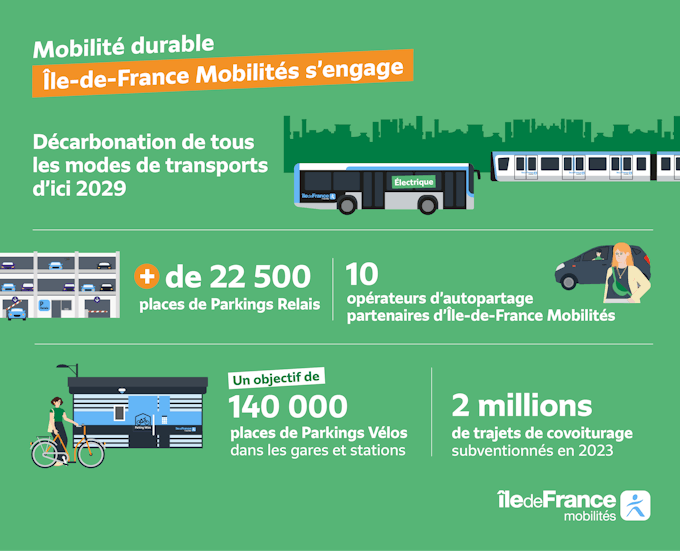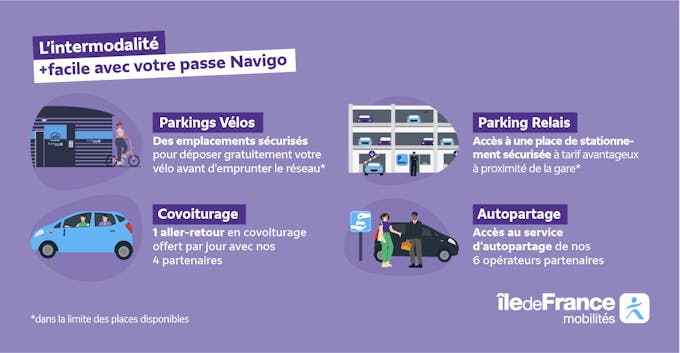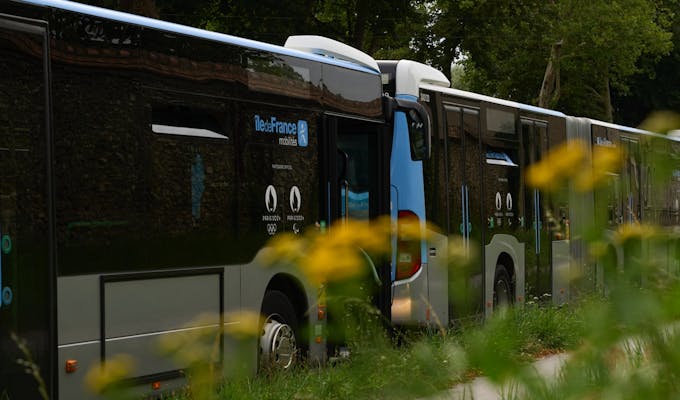European Mobility Week 2024

The theme of European Mobility Week in 2024? The sharing of public space. This is an issue that resonates particularly strongly with the missions carried out by Île-de-France Mobilités. Because sharing public space requires more and more public transport, but also a real placefor active mobility (walking, cycling, for example)
Make people want to choose public transport
Choosing public transport to get around is already the first act that everyone can take to share public space.
And precisely, giving everyone the opportunity to make this choice is one of the ambitions of Île-de-France Mobilités. Subscriptions at controlled prices, social fares, payment, recharging and validation of transport tickets that are ever more practical and easier intermodality: these are the tools for sustainable mobility chosen.
This is also why Île-de-France Mobilités is integrating more and more advantages into your Navigo subscription, making it easier to park your bike or car as close as possible to your daily train or RER, developing evening buses and on-demand descent, strengthening safety and, of course, investing year after year to develop or extend its network through tram, bus, RER, metro, TD or train lines, as close as possible to your home.

Organising the energy transition

At the same time, Île-de-France Mobilités has been undertaking a titanic project for many years to renew its buses and coaches in order to replace them with more energy-efficient models.
Whether they are electric (in the inner suburbs) or use biomethane, the vehicles in the Île-de-France Mobilités network are part of a strategy of energy frugality and reduction of greenhouse gas emissions.
4000 bus propres achetés depuis 2016
"Since 2016, we have bought 4,000 clean buses (40% of the fleet). But 60% of buses still run on diesel. We will have 100% clean buses in urban areas by 2025 (electric, hydrogen, NGV, etc.). In rural areas, we will achieve a total phase-out of diesel by 2025, thanks to biofuels. We will use HVO, made from waste and used cooking oil, in diesel buses, before replacing them by 2029," said Valérie Pécresse, President of the Île-de-France region and President of Île-de-France Mobilités, on August 28 in an interview with the newspaper Le Parisien.